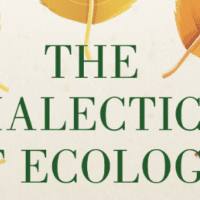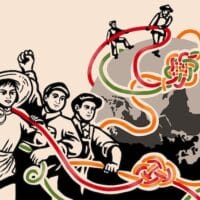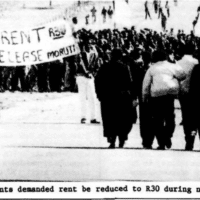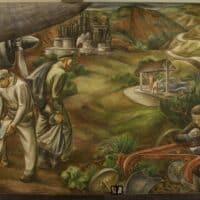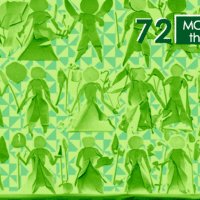-
John Bellamy Foster Book Launch: “The Dialectics of Ecology”
Book Launch: “The Dialectics of Ecology”
-
“Why do you fear my way so much?”
Professor Saibaba’s life, or rather, Sai’s life, for that is what his friends called him, cannot be adequately understood without situating him in an authentic history and “present as history” of the Indian society of which he was a part.
-
Dossier no. 81: The Twentieth Century, the Global South, and China’s historical position
Chinese scholar Wang Hui looks back at the twentieth century, which was born out of the multiple revolutions in the peripheral areas of the world, including China.
-
The Fortieth Anniversary of the Vaal Uprising
Forty years later, Lehlohonolo Kennedy Mahlatsi looks back on the Vaal Uprising in South Africa, which marked a turning point in the growth of mass-based organizations throughout the country and the mass rejection of apartheid colonial rule.
-
Direct Job Creation in America with Steven Attewell (New Transcript!)
This month we are re-publishing our conversation with Steven Attewell along with a new written transcript and episode graphic. Attewell is author of the incredible book, People Must Live by Work: Direct Job Creation in America from FDR to Reagan, published in 2018 by University of Pennsylvania Press. The book examines the history of job creation programs in the United States from the Great Depression to the Humphrey-Hawkins Act of 1978.
-
Teetering and tears: Berlin Bulletin No. 227, October 11, 2024
Despite all the many years, those who hated the GDR still hate it today. Indeed, they seem to fear it, and continue almost daily to revile its memories—like kicking an old horse cadaver which might yet bite or strike out with a hoof or two.
-
John Bellamy Foster interviewed by Daniel Tutt on Georg Lukács and “The Destruction of Reason”
John Bellamy Foster speaks with Daniel Tutt about the work of István Mészáros and Paul Baran, contemporary irrationalist tendencies in left ecological thought, intensifying global class struggles, and the continued relevance of Georg Lukács’s The Destruction of Reason (1952), recently reissued with an introduction by Enzo Traverso by Verso in 2021.
-
On Adam Hanieh’s Crude Capitalism
Andy Higginbottom reviews Adam Hanieh’s crucial new book, Crude Capitalism.
-
Seventy-Five Years of the Chinese Revolution
Tings Chak and Vijay Prashad take stock of seventy-five years of the Chinese Revolution.
-
Five Theses on Actually Existing Marxism
In honor of the monumental life of Fredric Jameson (1934–2024), we republish an essay he wrote for the April 1996 issue of Monthly Review.
-
Disgusted voters: Berlin Bulletin No. 226, September 24, 2024
Most worried of all are the people in eastern Germany, the one-time German Democratic Republic founded so hopefully almost exactly 75 years ago, October 7, 1949, and buried—triumphantly for a large number—41 years later, on October 3, 1990.
-
Tribal Nations & Eco-Feminist Provisioning with Josefina Li
We speak with Josefina Li, Assistant Director of the International Program Center at Bemidji State University and doctoral candidate at University of Missouri, Kansas City. Josefina’s dissertation research brings feminist and ecological economic traditions into conversation with Modern Monetary Theory.
-
Dossier no. 80: The Telugu People’s Struggle for Land and Dreams
This dossier catalogues the immense cultural production of the Telangana armed struggle in India and how it inspired the people to participate in cycles of protest against colonialism, monarchy, and landlordism, building on the idea that art and culture are both produced by the class struggle and, in turn, produce the class struggle.
-
Neoliberalism and the Socialist Movement in Britain: From the Third Road to Jeremy Corbyn and Brexit
Zhao Dingqi interviews Dave Hill about neoliberalism and the socialist movement in Britain.
-
Canada’s Militarization and the End of U.S. Hegemony
Owen Schalk details how Canada’s policies—the hostile moves toward geopolitical opponents, efforts to decrease economic ties to China through critical minerals exploration, and hundreds of billions of dollars in projected military spending over the next decades—do not make Canadians safer.
-
East German election trimmings: Berlin Bulletin No. 225, September 5, 2024
Is the AfD a fascist party? Björn Höcke, its boss in Thuringia, one of its three best-known national leaders and its main rabble-rouser, has never concealed his admiration for Germany’s days of swastika glory.
-
A Punishing Memory Culture
Kevin Potter analyzes the punishing memory culture surrounding Palestine activism at the University of Vienna.
-
Reading James Baldwin in a time of American decline
Baldwin theorizes whiteness as the psychology of empire.
-
The Occupation of East Asia
Kyle Ferrana details the brutal legacy of U.S. imperialism in the Pacific.
-
Dossier no. 79: To Confront Rising Neofascism, the Latin American Left Must Rediscover Itself
The Tricontinental presents a broad overview of the Latin American far right’s political, economic, and cultural programs and how the absence of a real left political project that secures better living conditions has thrown different fractions of the working class into the grip of neofascism.

